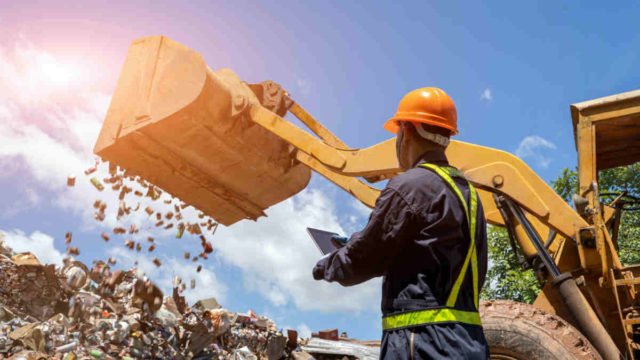PharmAust subsidiary Epichem’s pilot agreement with Shell Australia was made possible by NERA, a non-profit that matches SMEs with industry giants.
PharmAust’s (ASX:PAA) wholly owned subsidiary, Epichem, has secured a recycling pilot program with Shell Australia to help reduce plastic waste from the giant’s operations and supply chains.
Under the agreement, Epichem will help Shell by using a process that liquefies plastic, changing the plastic’s chemical structure to make it biodegradable or able to be repurposed into another end-product.
The pilot has been made possible through NERA’s (National Energy Resources Australia) GeneratER program, delivered in partnership with the Western Australia Government. Epichem has been awarded a $45,200 Challenge Grant from NERA..
NERA is an industry broker and a federally funded not-for-profit organisation that works with the government, research, science and industry to help decarbonise Australia’s energy sector.
NERA’s GeneratER program aims to identify opportunities to connect specialist small and medium enterprises (SMEs) to larger industry operators like Shell.
Showcasing Epichem’s technology
The program has identified Epichem as having the best technology to assist Shell in improving plastic recycling across its operations in Western Australia, Queensland and the Northern Territory.
“Without programs such as GeneratER, it can be difficult for SMEs to get a foot in the door with major companies,” said NERA CEO, Miranda Taylor.
“For Epichem, GeneratER provides an opportunity to showcase the far-reaching potential of its solution. The impact of winning this pilot cannot be understated.”
Epichem will help Shell segregate plastic from co-mingled waste, and turn it into recyclable products by using restorative and regenerative design solutions.
The technology will not only eliminate the need to send waste to landfill, it also creates new commercial opportunities by turning plastic into useful products. It also has applications across other industries and sectors where plastic waste is prevalent.
Taylor said GeneratER addresses genuine industry challenges and fosters a collaborative environment of innovation, while attracting solutions from world-class technology providers like Epichem.
“The GeneratER program goes to the heart of NERA’s ethos, which is to create connections for growth,” she said.
“That’s why NERA designed the GeneratER program to form invaluable connections between the small businesses who have high-impact solutions and larger companies who need them, making it easier for companies to innovate together.”
Shell Australia’s Supply Chain general manager Ashley Bates said the company was “pleased to be a part of NERA’s GeneratER program, working with companies like Epichem to further develop technologies with the potential to help Shell actively reduce waste across our Australian operations”..
The pilot is anticipated to be completed in early October 2022.
Epichem’s revenue path
Separately, Epichem’s successful ewaste technology could also create new revenue streams for PharmAust, as it eyes the lucrative waste and mining industry.
In February, the company completed the Oxidative Hydrothermal Dissolution (OHD) e-waste project funded by the WA state government, with promising results.
The OHD technology demonstrated its ability to convert and repurpose e-waste into useful end products by recovering valuable metals and producing high-value chemicals.
Using the technology, results showed that plastics were able to be removed via oxidative dissolution, thereby isolating a bunch of by-products of major metals such as gold, tin, copper, iron and zinc.
In order to execute on its revenue strategy, Epichem has recently appointed former Novartis executive Fiona Milner as its new general manager in May.
This article was developed in collaboration with PharmAust, a Stockhead advertiser at the time of publishing.
This article does not constitute financial product advice. You should consider obtaining independent advice before making any financial decisions.
You might be interested in











